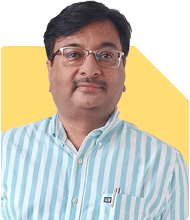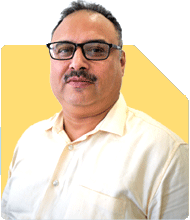Hi sir i had land , can i sell it put the money in mutal fund .... tq in advance
Ans: Thank you for your query. Selling land to invest in mutual funds can be a prudent financial decision. Let's explore this idea in detail, keeping your best interests in mind. I appreciate your forward-thinking approach and understand the significance of this decision for your financial future.
Understanding the Benefits of Mutual Funds
Mutual funds offer several advantages over real estate as an investment. They provide diversification, liquidity, professional management, and the potential for significant returns.
Diversification
Mutual funds invest in a variety of assets, including stocks and bonds. This diversification reduces risk, as poor performance in one asset is often balanced by better performance in another.
Liquidity
Mutual funds are highly liquid. You can redeem your investments at any time, unlike real estate, which can take months or even years to sell.
Professional Management
Mutual funds are managed by experienced fund managers. These professionals use their expertise to maximize returns, adjusting the portfolio as needed.
Evaluating Your Current Financial Position
Before proceeding, let's evaluate your current financial position. Understanding your overall financial health is crucial in making informed decisions.
Existing Assets and Liabilities
You own land and are considering selling it. Assess the current market value of your land. Determine if there are any outstanding loans or liabilities associated with it.
Financial Goals
Clearly define your financial goals. Are you looking for long-term growth, regular income, or capital preservation? Your goals will influence the type of mutual funds suitable for you.
Risk Tolerance
Assess your risk tolerance. Mutual funds come in various risk levels, from conservative debt funds to aggressive equity funds. Knowing your risk tolerance helps in selecting appropriate funds.
The Process of Selling Land
Selling land involves several steps. It’s important to follow a structured approach to maximize returns and ensure a smooth transaction.
Market Valuation
Get a professional valuation of your land. Understanding its market value helps in setting a realistic selling price.
Finding Buyers
Engage a real estate agent or use online platforms to find potential buyers. Effective marketing can attract serious buyers quickly.
Legal Considerations
Ensure all legal documentation is in place. This includes the title deed, tax receipts, and encumbrance certificate. Clear any legal issues before proceeding with the sale.
Finalizing the Sale
Negotiate with potential buyers to get the best price. Once agreed, complete the sale through a registered sale deed. Ensure all payments are received and documented.
Investing in Mutual Funds
Once the land is sold, the next step is to invest the proceeds wisely. Mutual funds offer various options tailored to different financial goals.
Types of Mutual Funds
Mutual funds come in several types, each with unique characteristics and benefits.
Equity Funds
Equity funds invest primarily in stocks. They offer high growth potential but come with higher risk. Suitable for long-term goals.
Debt Funds
Debt funds invest in fixed-income securities like bonds and treasury bills. They provide stable returns with lower risk. Ideal for conservative investors.
Hybrid Funds
Hybrid funds invest in a mix of equity and debt. They balance risk and reward, suitable for moderate risk-takers.
Benefits of Actively Managed Funds
Actively managed funds, guided by expert fund managers, aim to outperform the market. They offer potential for higher returns, especially in volatile markets.
Expertise and Strategy
Fund managers use their expertise to make informed investment decisions. They actively monitor and adjust the portfolio based on market conditions.
Flexibility
Actively managed funds can adapt to market changes. This flexibility helps in capturing opportunities and mitigating risks effectively.
Disadvantages of Index Funds
Index funds aim to replicate market indices. They can be less responsive to market changes, potentially yielding lower returns during downturns. Actively managed funds leverage expert insights to navigate market fluctuations, aiming for better performance.
Disadvantages of Direct Funds
Direct funds, although lower in cost, might lack the personalized guidance offered by Mutual Fund Distributors (MFDs) with Certified Financial Planner (CFP) credentials. Regular funds provide professional advice, helping you make informed investment decisions tailored to your financial goals.
Step-by-Step Investment Plan
Here’s a step-by-step plan to invest the proceeds from selling your land into mutual funds.
Step 1: Determine Investment Amount
Calculate the net amount from the land sale after deducting any liabilities and transaction costs. This is your investable amount.
Step 2: Asset Allocation
Based on your risk tolerance and financial goals, decide the asset allocation between equity, debt, and hybrid funds. Diversification is key to balancing risk and return.
Step 3: Choose Mutual Funds
Select mutual funds that align with your investment goals. Look for funds with a good track record, consistent performance, and reputable fund managers.
Step 4: Systematic Investment Plan (SIP)
Consider investing through SIPs. This approach spreads your investment over time, reducing the impact of market volatility and leveraging rupee cost averaging.
Step 5: Monitor and Review
Regularly monitor your investments. Review the performance of your mutual funds periodically and make adjustments if necessary. Stay informed about market trends and economic factors that may affect your investments.
Potential Growth and Returns
Investing in mutual funds can potentially offer significant returns over the long term. Let’s illustrate with an example.
Assume you invest Rs.50 lacs from the land sale into mutual funds. If we consider an average annual return of 12%, here’s how your investment can grow over 10, 15, and 20 years.
10 Years
FV = PV × (1 + r)^n
Where:
PV = Rs.50,00,000
r = 12% annually
n = 10 years
FV = 50,00,000 × (1 + 0.12)^10
FV = 50,00,000 × 3.1058
FV = Rs.1,55,29,000
15 Years
FV = PV × (1 + r)^n
Where:
PV = Rs.50,00,000
r = 12% annually
n = 15 years
FV = 50,00,000 × (1 + 0.12)^15
FV = 50,00,000 × 5.4734
FV = Rs.2,73,67,000
20 Years
FV = PV × (1 + r)^n
Where:
PV = Rs.50,00,000
r = 12% annually
n = 20 years
FV = 50,00,000 × (1 + 0.12)^20
FV = 50,00,000 × 8.983
FV = Rs.4,49,15,000
Addressing Common Concerns
Market Volatility
Market volatility is a common concern for investors. However, staying invested for the long term can help ride out short-term fluctuations and benefit from overall market growth.
Inflation
Mutual funds, especially equity funds, have the potential to outpace inflation over the long term. They provide growth that can help preserve the purchasing power of your money.
Tax Efficiency
Mutual funds offer tax benefits, especially long-term capital gains (LTCG). Equity funds have a favorable tax regime, making them attractive for long-term investors.
Final Insights
Selling your land and investing the proceeds in mutual funds is a smart financial move. It offers diversification, liquidity, and the potential for significant returns. By following a structured investment plan and leveraging the expertise of fund managers, you can achieve your financial goals. Regular monitoring and periodic reviews will ensure your investments stay aligned with your objectives.
Best Regards,
K. Ramalingam, MBA, CFP,
Chief Financial Planner,
www.holisticinvestment.in



























